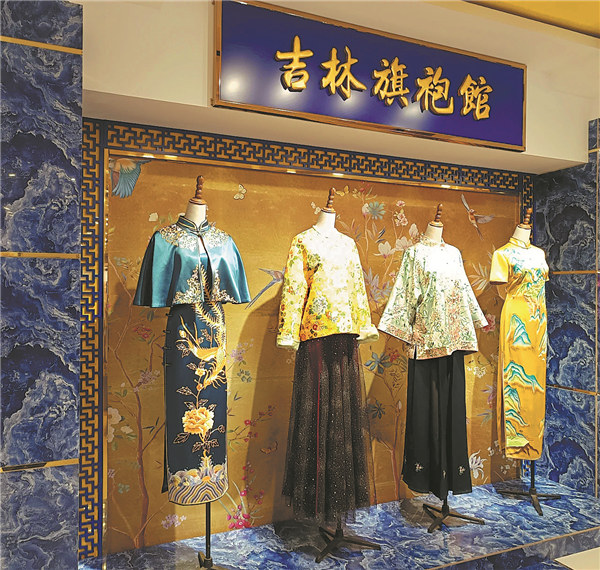Jilin's Qipao Hall preserves ancestral threads


She invited several skilled cheongsam tailors she had worked with and turned her shop into the current Qipao Hall in 2012.
Zhu has her own interpretation of inheritance.
"Preserving the belongings of ancestors is the best form of inheritance," she said. "I used traditional Manchu techniques to embroider patterns left by the elders onto the clothing."
Furthermore, she delved into the more primitive memories of Manchu clothing in Jilin city, striving to restore them as much as possible.
While searching, she discovered her calling: to craft unique Manchu embroidery that reflects the essence of the region. Her designs seamlessly blend elements such as fishing, hunting, ice and snow, and cultural expressions of the tradition of labor.
In 2019, Zhu became a municipal-level inheritor of traditional Manchu embroidery.
At Zhu's Qipao Hall, clients must wait seven to 15 days for their custom cheongsams.
"The customers first choose the fabric and style, and then the tailor takes measurements," she said. "After three days, they can try on the samples, and the tailor will make corrections. Embroidered patterns will be matched based on the customer's height and stature."
Depending on the fabric and style, the price of each custom cheongsam varies from several hundred yuan to tens of thousands of yuan.
"In the beginning, most of my clients were middle-aged and elderly people who wanted to participate in important occasions, such as their children's weddings," Zhu explained. "In recent years, with the popularity of Chinese-style clothing, Manchu cheongsams have also attracted young people."
"Some mothers and teachers are choosing to wear qipao to cheer on students taking life-altering exams, such as the college entrance exam, or gaokao, and the senior high school entrance exam," she said.




































